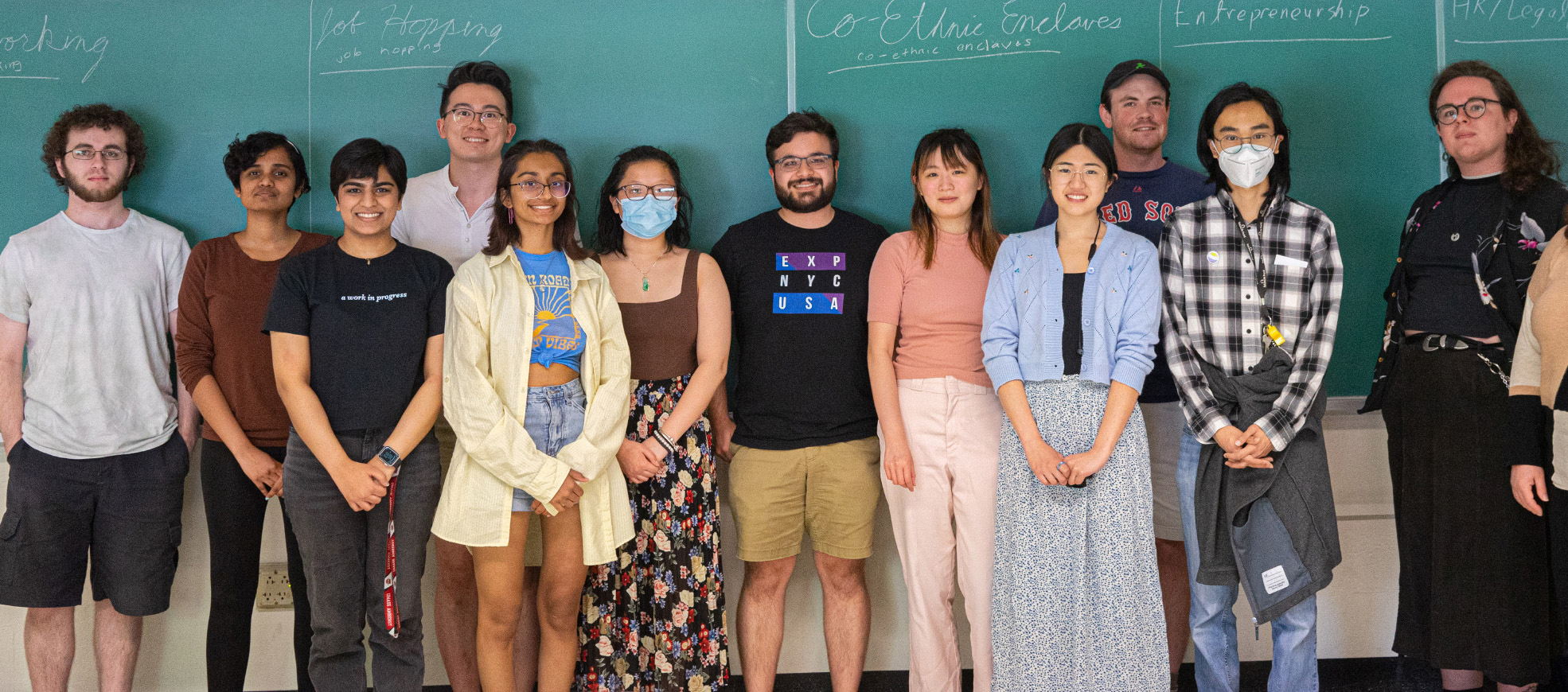CICS Students Join National Conversation Around AI Ethics and Trust

Students in a class discussion
When the National Telecommunications and Information Administration (NTIA) put out a call for comment, seeking input on what policies should shape its AI accountability ecosystem, students at CICS were ready.
Led in discussions by their instructor Senior Lecturer II Michelle Trim—who has been developing university courses in ethics and technology for 15 years—students in COMPSCI 305: Social Issues in Computing and COMPSCI 508: Ethical Considerations in Computing worked to develop and submit ideas to the NTIA that could support the development of earned trust in AI systems.
The call for feedback was part of the federal agency’s inquiry launched in the spring of 2023 into what policies will help businesses, government, and the public trust that artificial intelligence systems “work as claimed, without causing harm.”
As an educator, Trim—who serves as chair of the Association for Computing Machinery’s Computers and Society special interest group and was recently named co-chair of the Joint Task Force on Generative AI at UMass Amherst—saw an opportunity to help her students take a step forward as part of the community of scientists discussing the ethics of AI.
“I think people mistake these kinds of conversations as being a ‘feel good’ exercise focused on the exploration of personal feelings. This is a rich intellectual space that has deeply human implications,” explains Trim. She compares this project, with its consideration of pressing real-world problems and the impact of real submissions to the federal public record, to the depreciated practice in computer science of using toy problems—silly and decontextualized exercises—to train skills. “We can connect how we’re teaching in our classrooms with what’s happening in the world in a way that’s disciplinarily relevant. Every teaching moment is an opportunity to engage students in a piece of the world in which they live, and to bring their own lived experience to what they’re doing.”
In the process of writing their comments to be submitted to the NTIA, students learned about how to consider their audience and construct arguments while bringing their “whole selves” to the conversation.
“It was interesting to see how each member of the group interpreted the questions and had different perspectives,” says Jeffrey Profile ‘23, a student in COMPSCI 305. “This diversity of thought enriched our discussions and ultimately led to a more comprehensive and well-rounded response. We were able to combine our individual insights and formulate a stance that reflected our shared values and concerns regarding AI accountability.”

Students from COMPSCI 508: Ethical Considerations in Computing, Spring 2023
The work took on extra meaning when the entire class of students, individually and in groups, submitted their comments to be considered and entered into the Federal Register. “There was joy, there was this kind of profound moment when they pressed submit,” says Trim. “If you give students a genuine platform and earn their trust so that they believe that what they say matters, that’s real; you’ll find that all these people who you thought were tuned out are not disconnected at all.”